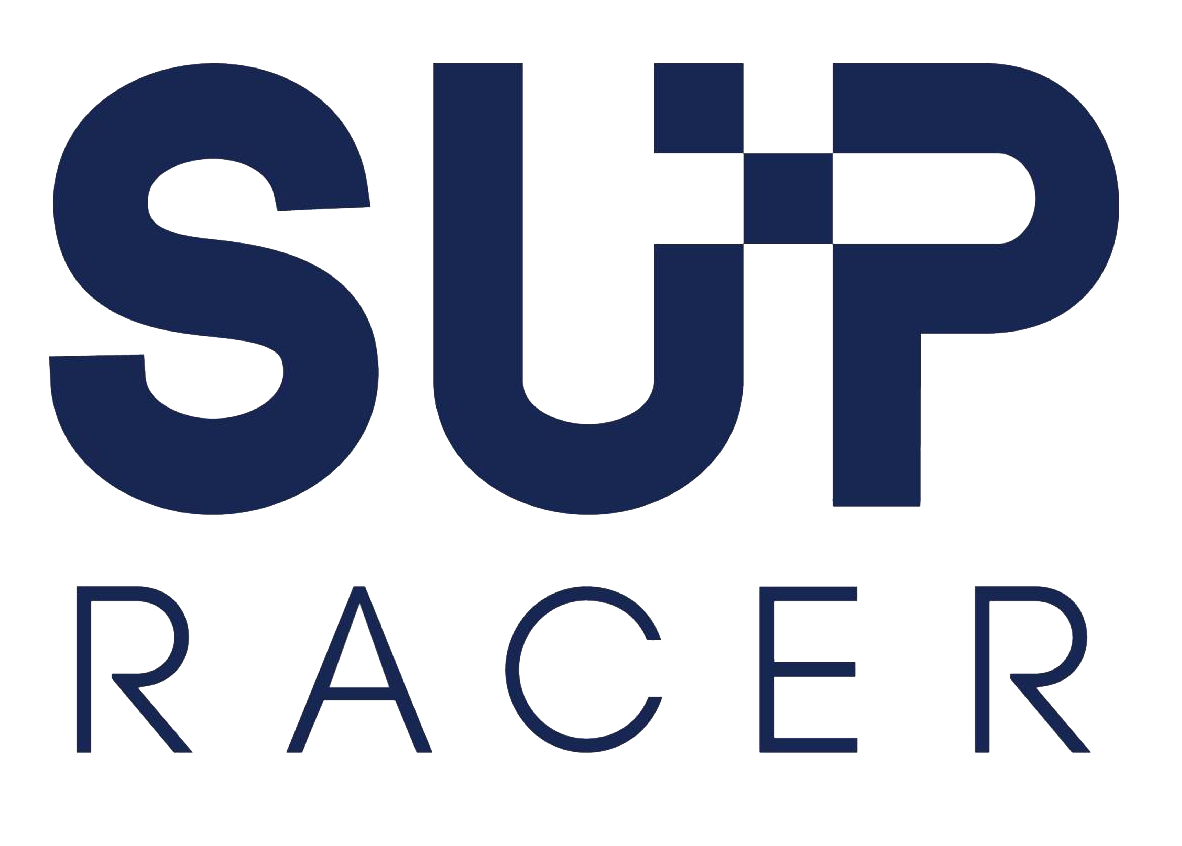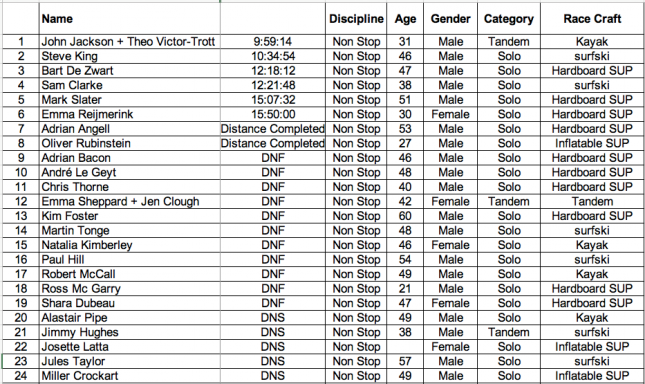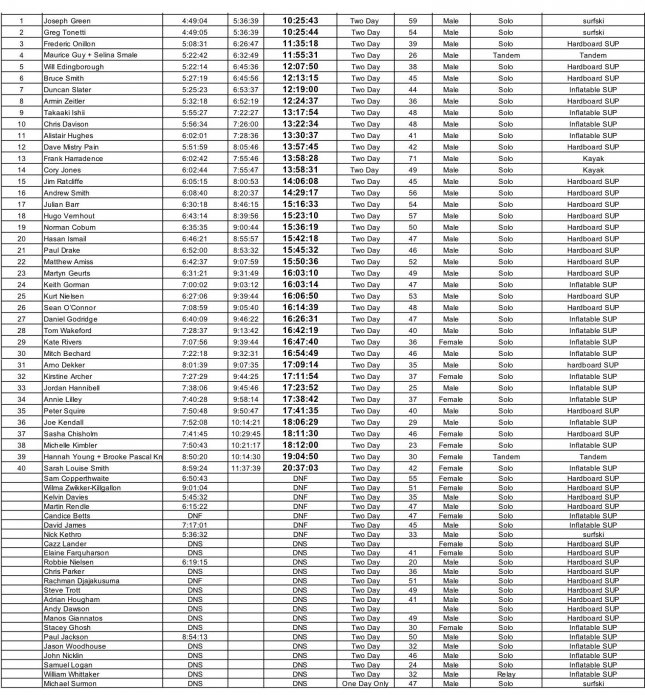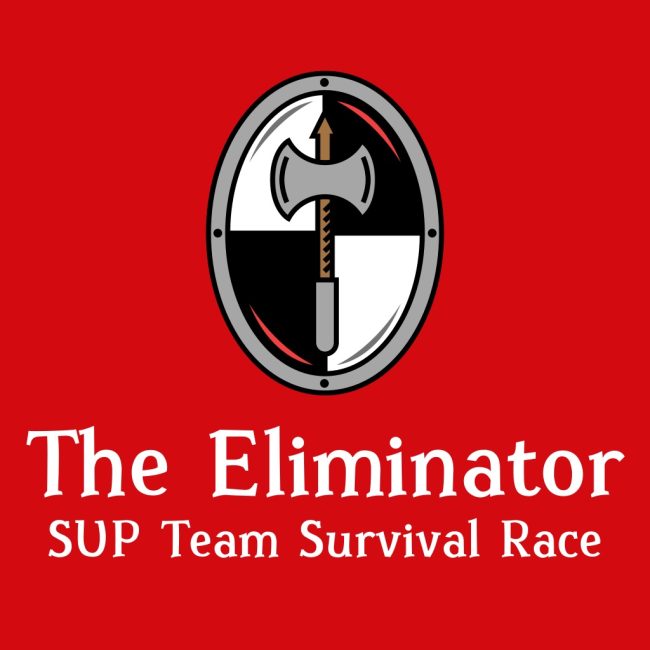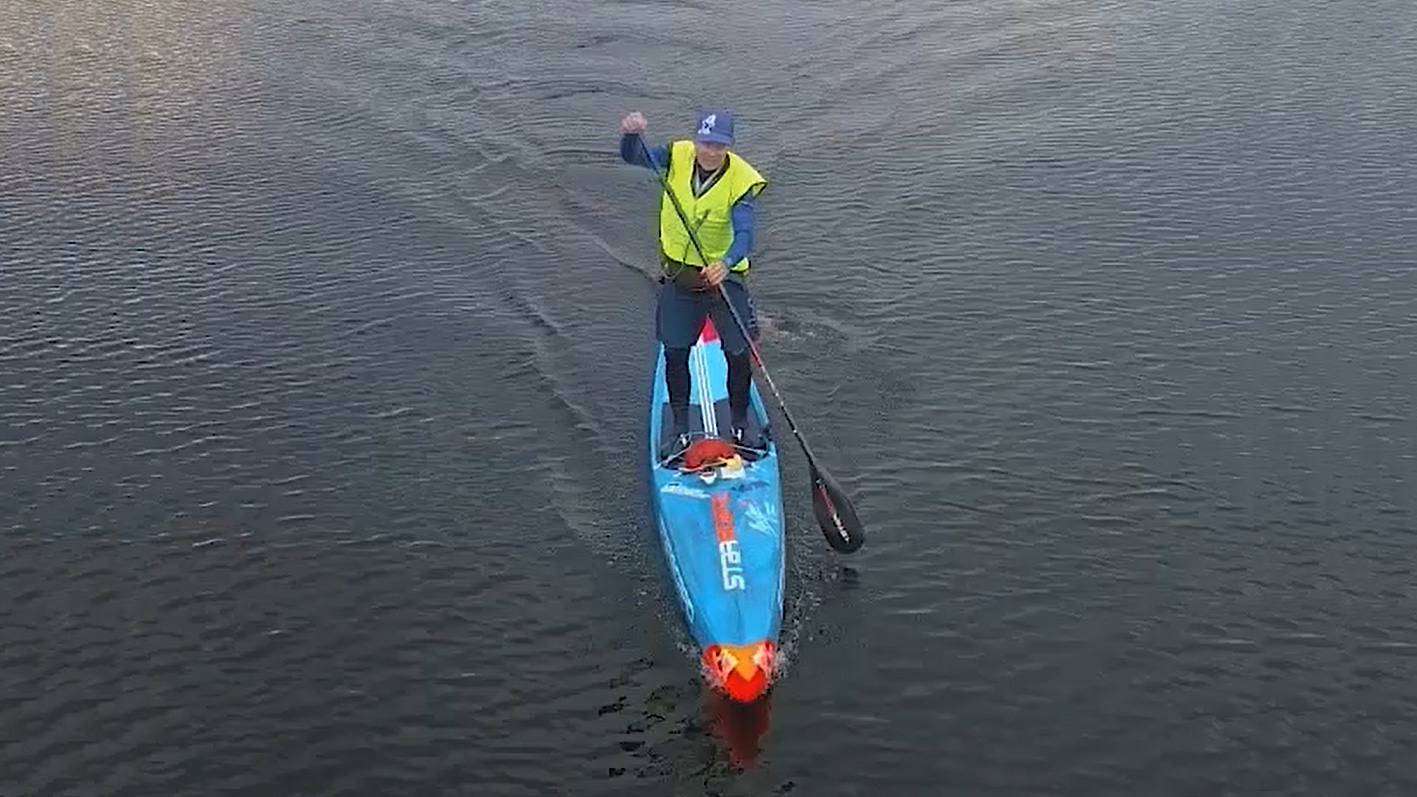
Great Glen Challenge: We fought the Loch Ness Monster and the Loch Ness Monster won
[notdevice][/notdevice][device][/device]
Apparently there’s a 50-year-old Glenfiddich single malt Scotch whiskey that sells for £30,000 a bottle. We might have to increase the budget of the Great Glen Challenge next year, because I’m pretty sure that drink was the only thing we could have offered Nessie to calm her down on Sunday.
The Loch Ness Monster was angry this year, and the mythical creature vented her fury on 70 stand up paddlers that dared enter her watery domain in the highlands of Scotland. What was forecast to be a 92km (57 mile) paddle through calm, beautiful countryside turned into a brutal test of strength, stamina and sheer grit as Nessie whipped up howling headwinds on her home waters.
Competitors can paddle the Great Glen Challenge in one of two ways: The crazy, no-sleep, “non-stop” version that starts at 3am Sunday morning (we woke up at midnight Saturday night), or the relatively milder two-day stage race that occurs during daylight hours.
The course can actually be reversed if the forecast shows favourable winds; this ultra actually has the potential to be the biggest downwinder in the world as a series of three long lakes (or “lochs”) connected via narrow canals and walled by wind tunnel-like mountains link one side of Scotland to the other.
But the forecast was decidedly vague this year; a flip of the coin. Nobody expected wind like this.
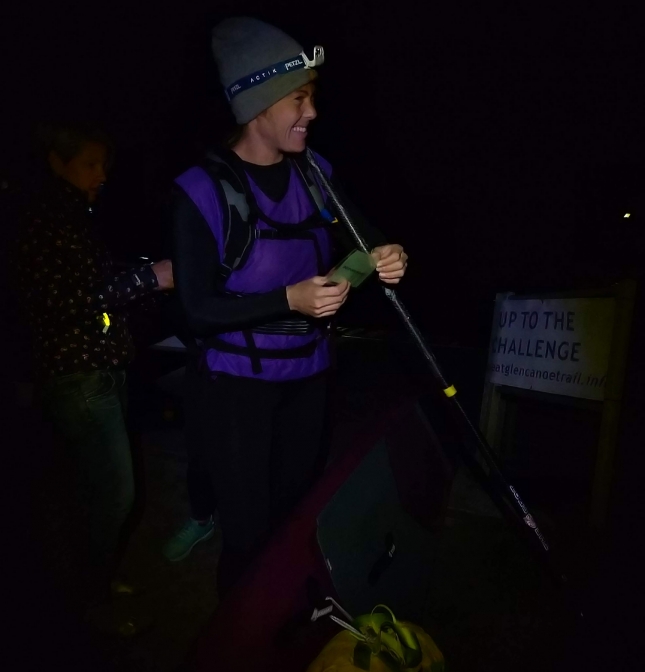
Emma Reijmerink all smiles in the early hours (photo: @paddleleague)
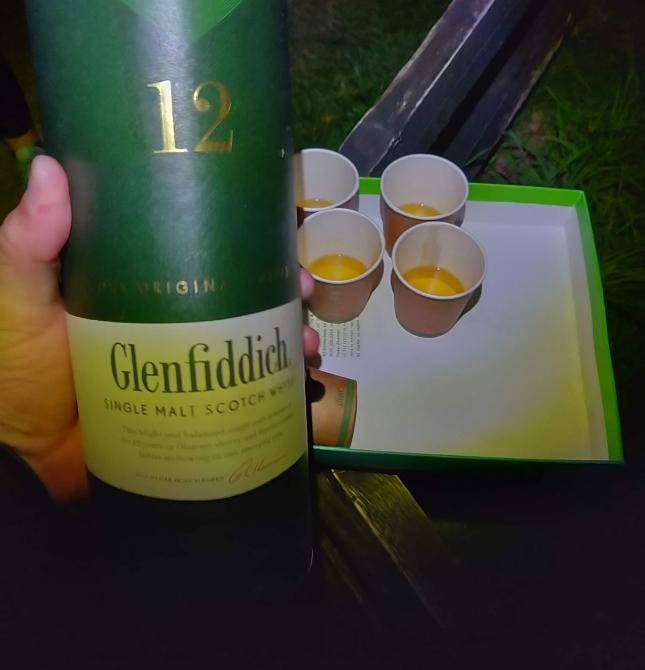
This is how you start a race at 3am (photo: @paddleleague)
After the non-stop competitors had already been on the water about five or six hours – the race started at 3:08am (with a glass of whiskey for each competitor) and sunrise wasn’t til after 7 – they reached the infamous Loch Ness where a wall of headwind whipped up waves in the wrong direction.
Fortunately it died down in the back half of the Loch (where we scored the drone footage up top), but the damage had already been done: only 6 of the 19 non-stop starters eventually reached the finish and only half of those were standing up (the event also includes kayaks and surfskis).
Ross McGarry, hero of the Jersey Round Island Challenge a few weeks ago, had led the field early but retired halfway across the famous Loch Ness. Another favourite, Andre Le Geyt from Jersey, simply turned around and enjoyed a downwinder back to the base of the Loch.
Many others bailed at the halfway mark: The famous Fort Augustus locks, a series of five “elevators” that lowers the water level by about 10 metres for passing boats.
Navigation of the lock system takes almost an hour as each pit is either filled or emptied of most of its water before a giant gate opens into the next lock. It’s a fascinating process to watch up close. But for paddlers who are racing from one side of the country to the other, the much faster option is to simply get out of the water at the first lock and run about 800 metres down to the base of Loch Ness.
This leads to some creative solutions as paddlers attempt to cross the portage as quickly as possible. Some will have a board caddy to ferry their board down to Loch Ness (the only rule is that paddlers must carry their paddle), while one paddler actually strapped their 14 footer to the roof of a car and ran alongside it down the road.
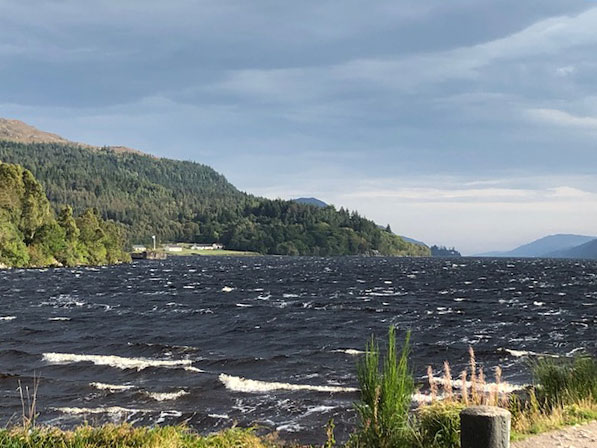
The infamous Loch Ness Monster was clearly pissed off about something (photo: Nancy Wesselsz)
Bart de Zwart had already been paddling for 11 hours when we found him with the drone (seen in the video up top). The “King of the Ultras” went on to reach the finish line in a time of 12 hours and 18 minutes. He’d just finished back-to-back 200km ultras (11 Cities Non-stop and Muskoka) yet the look on his face suggested Scotland had given him the toughest test.
This was Bart’s third ultra gold coin of the year after saluting at the epic races in the Yukon and Muskoka. But the Great Glen is an event so far off the scale that, just like the other ultras, the term “race” doesn’t really do it justice.
And either way, the real winner of this year’s Great Glen Challenge was clearly Nessie the Loch Ness Monster who chewed up and spat out dozens of paddlers.
Behind Bart, the Great Glen’s first-ever SUP winner – 2014 champion Mark Slater – finished in 15 hours, 7 minutes. Mark had gotten disoriented late in the day and thought the clock read 8pm. He pulled over near the end of Loch Ness, called the organisers and said he was abandoning the race so as not to keep everyone waiting. But when they informed him it was only 4pm he got a second wind and made it all the way to the finish line with a smile. Mark is one of the gentle giants of SUP, a dying breed of old-school paddler that never seems to grumble even when he’s got plenty of reason to do so.
But the battler of the day was definitely the Dutchwoman Emma “Never Give Up” Reijmerink, a former winner of the Non-Stop 11 Cities who crossed the line just before sunset in a time of 15 hours, 50 minutes. It was 7pm when Emma got off the water; the race had started at 3am.
Fortunately, while only three SUPs finished the non-stop edition of the Great Glen this year the ratio was a little brighter in the two-day division.
[notdevice][/notdevice][device][/device]
There was fire in the sky as 50 paddlers set off at about 6.30am Sunday. After having paddled 46km from Fort William to Fort Augustus on Saturday (where blue skies and light winds made for a beautiful day on the water — many said that, if anything, they were actually too hot), the two-dayers resumed their voyage under a fiery, early-morning sky at the base of Loch Ness.
Even in those wee hours the wind was already starting to blow. In the wrong direction.
Most battled on and broke through the virtual wall, limping home to the finish line at Inverness late the afternoon. There were 40 finishers in the weekend stage race (with another 10 retirements) led by Frenchman Frederic Onillon who crossed in a time of 11 hours, 35 minutes to become the only SUP to complete the course in less than half a day. Kate Rivers was the quickest of the women in just under 17 hours.
But like every event we support with the new Ultra Paddle League, it’s “more than just a race.” The Great Glen Challenge is a challenge in every sense. It’s a personal challenge where just finishing is the main goal, and everyone who did so thoroughly earned their glass of Glenfiddich and deep-fried Mars Bars at the after-party.
[notdevice][/notdevice][device][/device]
The field was book-ended by a hugely determined Sarah Lousie Smith who clocked a total of 20 hours, 37 minutes on the water across two days including 12 hours on Sunday alone. Sarah wasn’t the fastest finisher but she was certainly the happiest, not sure whether to break down in tears of joy & relief or just keep beaming her big smile from ear-to-ear.
Another who refused to give up was Adrian Angell, paddling to raise money for charity, who missed the mid-way cut-off but decided to drive to the finish and paddle back to the halfway mark with the wind. “I came here to paddle across Scotland and I plan to complete it one way or another.”
So despite some grumbles about the headwind, there were also plenty of smiles from the finishers. This had been an adventure. Though I suspect none were smiling quite as smugly as the Loch Ness Monster who enjoyed a smorgasboard of stand up paddlers for lunch.
If you want to take on Nessie yourself next year – and if you don’t like sleeping – add the epic Great Glen Challenge to your ultra bucket list. It’s not just an almighty challenge, it’s an adventure in some of the most beautiful scenery you’ll ever witness. “God’s Country” is what they call it around here.
Thank you to Joanne Hamilton-Vale, Pete and all the volunteers for pulling off a big event (and thanks SUPmission for trusting me with your drone!). We’ll see you next year, Scotland.
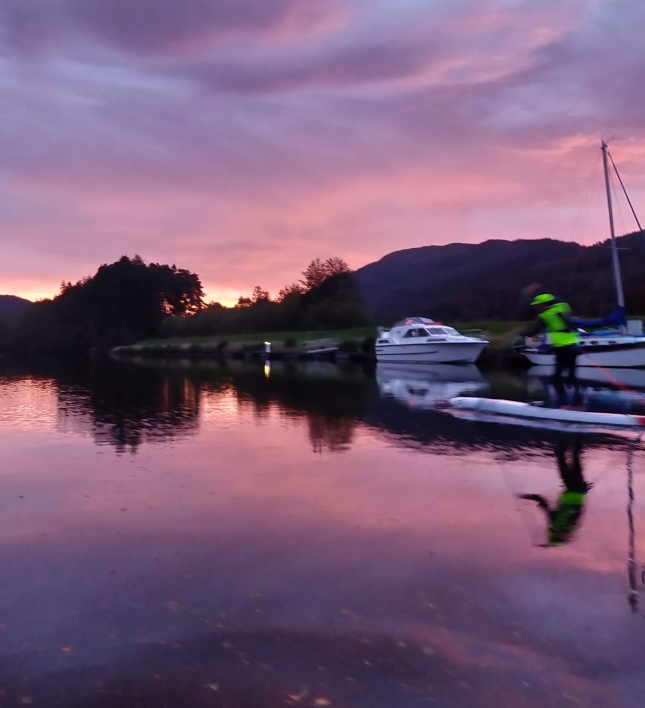
Sunrise speed blur: Ross McGarry (photo: @paddleleague)
NON-STOP RESULTS
TWO-DAY RESULTS
